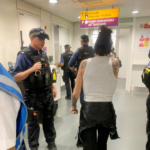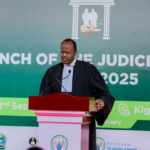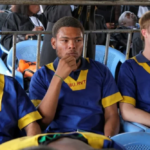A Moscow court has sentenced French researcher Laurent Vinatier to three years in a penal colony for violating Russia’s controversial “foreign agent” law. Vinatier, who was working for the Switzerland-based conflict mediation NGO, Centre for Humanitarian Dialogue, was arrested in June while gathering information that prosecutors alleged could be used against Russia’s military.
In court, Vinatier, 48, expressed remorse, stating that he was unaware of the need to register as a “foreign agent.” He admitted his guilt and recited a verse from renowned Russian poet Alexander Pushkin as part of his apology. Despite his defense team’s plea for a fine rather than imprisonment, Judge Natalia Cheprasova of Moscow’s Zamoskvoretsky district court rejected the request, sentencing Vinatier to three years in a general regime penal colony.
State prosecutors had sought a slightly longer sentence of three years and three months, arguing that the information Vinatier collected during his time in Russia could have been used to harm the country. Vinatier, wearing a blue shirt and jeans, remained composed as the verdict was announced, once again reciting Pushkin’s poem If Life Deceives You, which speaks of enduring hardship with the hope of better days.
Following the ruling, Vinatier’s defense lawyer, Pavel Mamonov, described the sentence as harsh and vowed to appeal. Vinatier had been working for the NGO, whose mission is to mediate and resolve conflicts globally, at the time of his arrest.
Russia’s “foreign agent” law, first introduced in 2012, requires individuals or organizations receiving foreign support or influence to register as foreign agents. The law has been widely criticized as a tool for suppressing opposition to President Vladimir Putin, and it has been used to detain both Russian nationals and foreigners.
In recent years, Russia has leveraged detained foreign nationals as bargaining chips in international negotiations. In August, the country freed American journalist Evan Gershkovich, former US Marine Paul Whelan, and others in exchange for Russian nationals held in the West.









